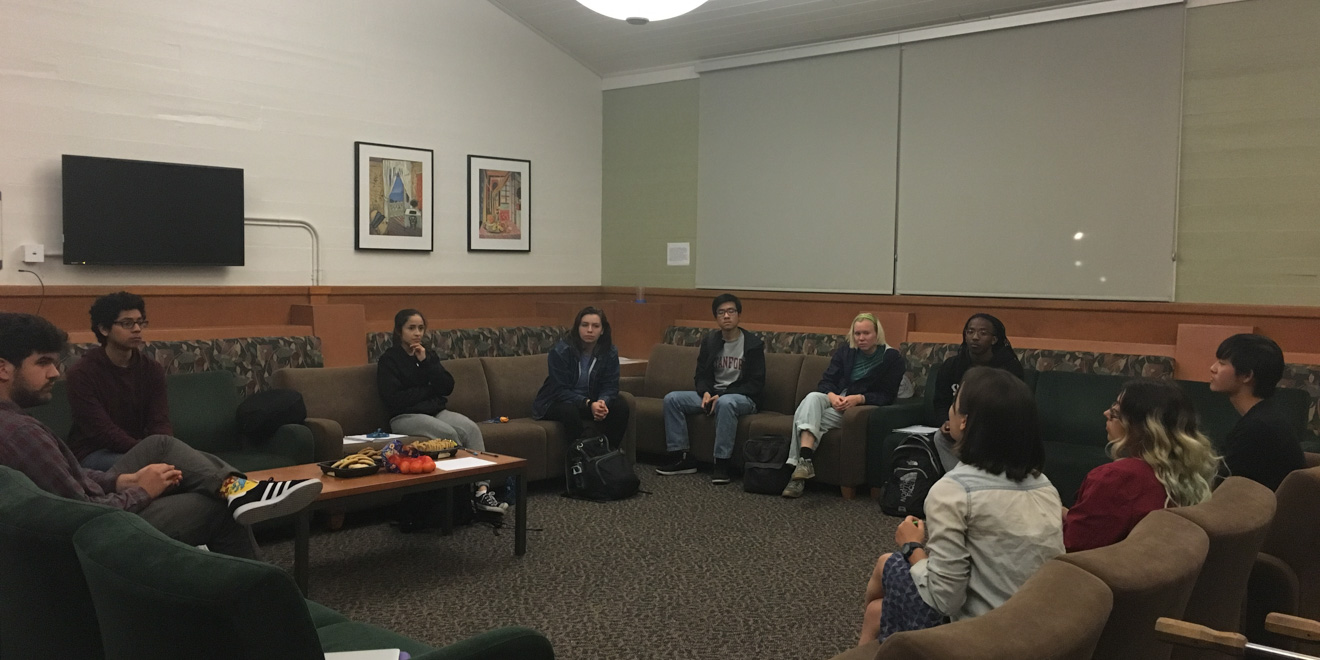Housing, workers’ rights, sustainability and transportation were among the key issues discussed at the Stanford Coalition for Planning an Equitable 2035 (SCoPE 2035) Town Hall on Monday.
“At the Town Hall, we will be visioning together about how Stanford can help end the housing crisis and guarantee justice for workers,” SCoPE wrote in an email advertising the event. “We will be soliciting your feedback on a rough draft of SCoPE policy proposals regarding workers rights, affordable housing and sustainability.”
The meeting began with an introduction from SCoPE member John Zhao ’18 about the organization and its current work in developing demands to be included in the new GUP. Courtney Pal ‘18, John Zhao ’18 and Eva Reyes ’19 led the meeting.
“We have created a basic list of issues that we’ve identified on campus,” said Courtney Pal ’18, a SCoPE member who led the Town Hall. “From that list – we’re calling these our ‘Demand Themes’ – we started to research each of these issues a little bit more and come up with a rationale for why this is something that is really important and why we should change or improve this problem on campus.”
SCoPE members outlined four key themes on which to focus demands – greenhouse gas emissions, housing, transportation and transparency. The number of Demand Themes ranged from two proposals in the Transparency and Accountability category to over 20 in Housing and Transportation. Each Demand Theme consisted of a demand, rationale, options and indicators of whether the demand could be enforced by Santa Clara County, or a voluntary move by the University.
The first three demands pertain to the anticipated population increase due to Stanford’s expected expansion over the next 17 years according to the GUP. As a result, SCoPE hopes that Stanford will establish a program to reduce greenhouse gas emissions from increased traffic, as well as provide affordable housing to mitigate the anticipated demand for 2,425 more off-campus housing units.
SCoPE hopes that Stanford will give community members outside the University access to its Long-Range Planning white papers, as well as a chance to comment on its contents. Currently, the white papers are only accessible to Stanford affiliates with login access.
Following a short brainstorming activity, students at the Town Hall also raised concerns about worker job security and mobility, and suggested that the University offer additional classes and training programs for Stanford employees. They also voiced concerns that workers at Stanford do not feel secure in expressing their issues because they do not want to lose their jobs.
Other students at the event said they feel it is unfair that only custodians are unionized, while janitorial workers are contracted and ineligible to join a union if they work fewer than 20 hours per week. Custodians clean in a building or property at any given time of the day, whereas janitors clean at a set time of the day.
Along with workers’ rights, students said they were concerned about the lack of available on-campus housing for University workers.
Pal further explained how housing, transportation and greenhouse gas emissions are interrelated issues. Because most Stanford workers cannot afford on-campus housing, they have long commutes to work, which is both expensive and creates smog. Stanford offers several transportation services such as the Commute Club, an environmentally conscious rideshare group, and Caltrain passes, but such services are not necessarily available to workers.
SCoPE 2035 is mainly concerned with the impact Stanford’s 2018 application for a new General Use Permit (GUP) will have on Stanford workers and the surrounding community. Currently, Stanford has analyzed and documented its predicted impact in the Draft Environmental Impact Report (DEIR). The DEIR is currently under review, and community comments are being taken into consideration in the GUP application process.
SCoPE will be holding a Town Hall meeting for community members on May 8 at 6:00 p.m. at the East Palo Alto City Hall.
Contact Nohemi Davila at nohemi ‘at’ stanford.edu.
